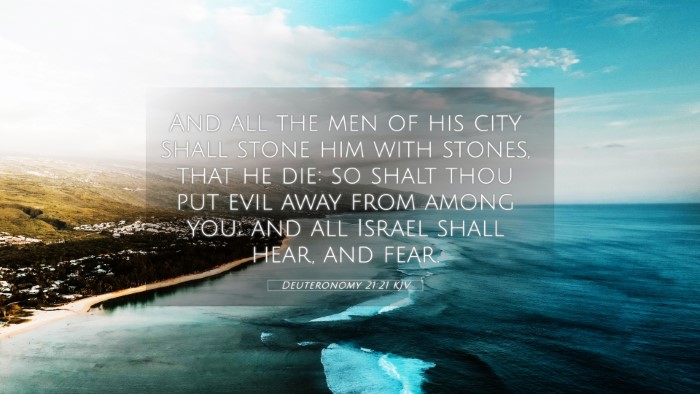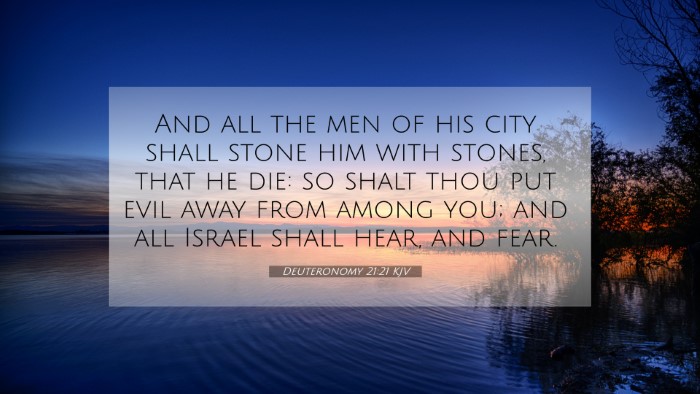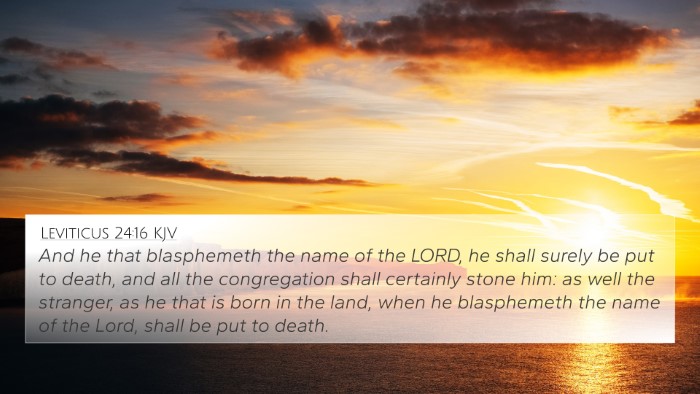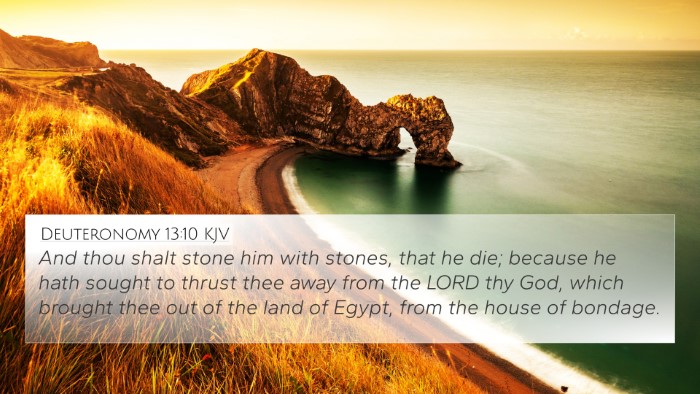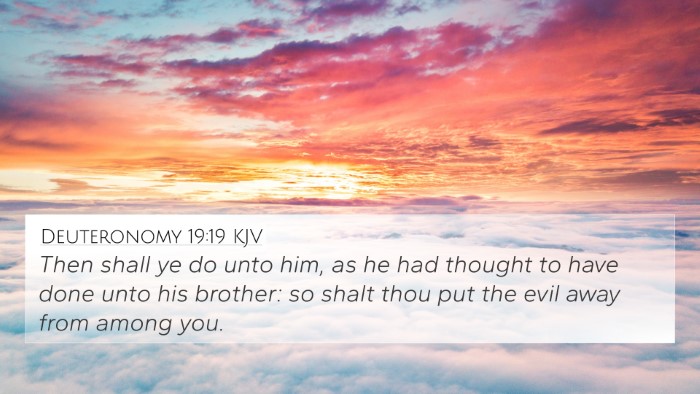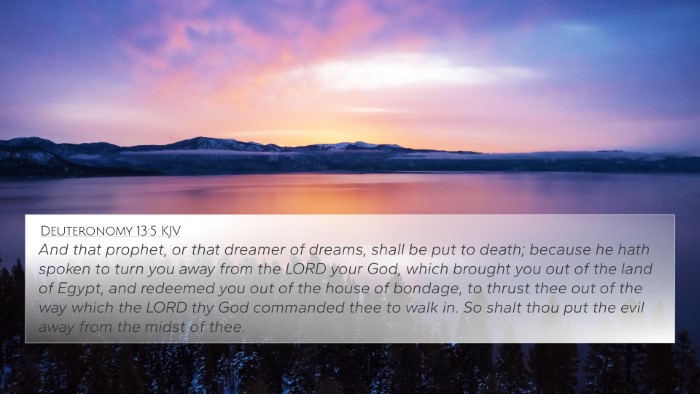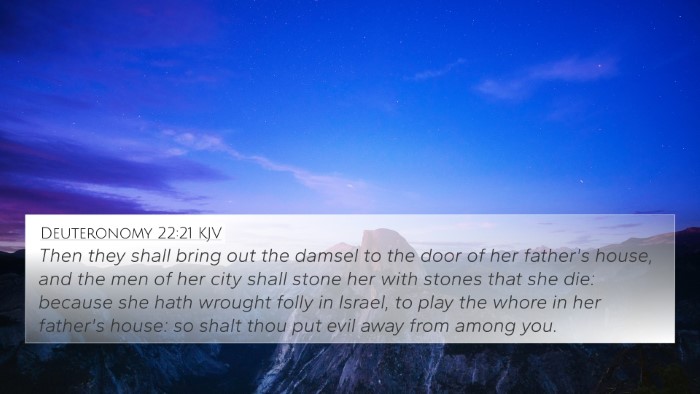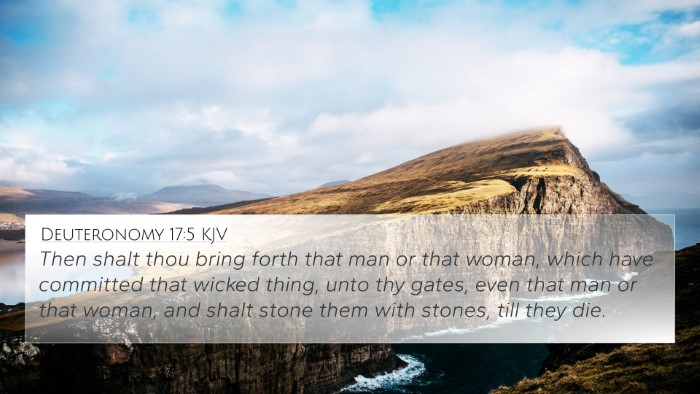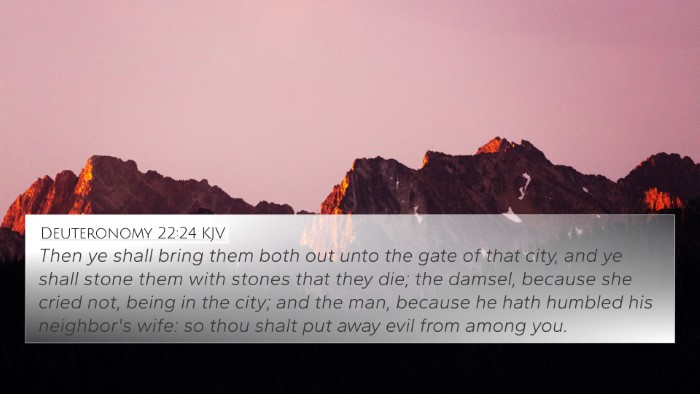Understanding Deuteronomy 21:21
Deuteronomy 21:21 states: "And all the men of his city shall stone him with stones, that he die: so shalt thou put evil away from among you; and all Israel shall hear, and fear."
This verse discusses the severe punishment prescribed for a disobedient son. In interpreting this verse, it reflects on the gravity of rebellion against parental authority and societal norms in ancient Israel.
Meaning and Context
The context of Deuteronomy 21:21 indicates a larger theme of community responsibility in sin management. Matthew Henry highlights that this law serves to demonstrate the seriousness of rebellion and the need for communal integrity. Albert Barnes further emphasizes the necessity of maintaining discipline within the nation and protecting the moral fabric of society.
Adam Clarke provides insight into the cultural practices of that era, noting that such harsh measures were extreme, emphasizing the goal of deterring others from sin. The prescribed punishment illustrates the importance of upholding God’s standards and the devastating consequences of rejecting them.
Thematic Insights
-
Sociocultural implications: The verse reveals the communal approach to sin and the emphasis on societal norms that guide behavior. This was essential in Israelite society as a means to ensure harmony.
-
Divine justice: This stipulation underscores God's demand for holiness, reflecting His desire for His people to live righteously. The seriousness of the punishment indicates that God does not take rebellion lightly.
-
Laws of the Old Testament: Deuteronomy 21:21 fits within a broader biblical legal context where the consequences for breaking God's commandments are laid out explicitly, guiding the governance of the Israelite nation.
Cross-References
Connecting Deuteronomy 21:21 to other scriptures strengthens understanding of its themes:
-
Exodus 20:12: “Honor your father and your mother, that your days may be long in the land that the LORD your God is giving you.”
-
Proverbs 30:17: “The eye that mocks a father and scorns to obey a mother will be picked out by the ravens of the valley and eaten by the vultures.”
-
Leviticus 20:9: “For anyone who curses his father or mother shall surely be put to death.”
-
Deuteronomy 19:19-21: Discusses the appropriate punishment for false witnesses, highlighting the seriousness of moral integrity in legal matters.
-
1 Corinthians 5:13: “Purge the evil person from among you,” indicating the necessity of removing sin from the community.
-
Hebrews 12:6: “For the Lord disciplines the one he loves, and chastises every son whom he receives,” showing the parental aspect of discipline.
-
Matthew 15:4: Jesus references the commandment honoring parents, reaffirming its significance.
Summary of Key Points
In summarizing Deuteronomy 21:21, the following points emerge:
-
This verse reflects a stringent measure against rebellion and dishonor towards parents, highlighting the need for communal discipline.
-
It illustrates God's standards for His people, emphasizing that moral decay must be addressed to uphold societal integrity.
-
Connecting this scripture with others reveals a consistent biblical theme of honor, discipline, and communal responsibility, effective for understanding the dynamics of Old Testament laws.
Application of Cross-Referencing Tools
Using tools for Bible cross-referencing can enhance comprehension of Deuteronomy 21:21. Here are some beneficial practices:
-
Use a Bible concordance to find related passages that discuss themes of discipline and morality.
-
Employ a Bible cross-reference guide to link scriptures that provide context to the importance of familial honor.
-
Explore cross-reference Bible study methods to conduct a deeper analysis of associated themes between the Old and New Testaments.
Conclusion
Deuteronomy 21:21 serves as a stark reminder of the seriousness with which God views rebellion and the dishonor of parental authority. Through cross-referencing, one gains insight into broader biblical themes and how they interconnect, providing a rich understanding of God’s law and its purpose in the life of His people.

